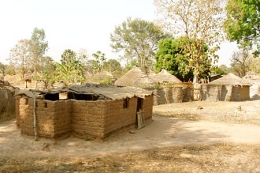Another term used to refer to the Fulfude language is Fula or Fulani. The Wolof refer to the language speakers as Peul. Western Fulfude speakers refer to themselves as Fulbe or Pulaar, while the eastern dialects refer to themselves as Fulfude . This language is spoken by 13 million people in West Africa. It is widely spoken in Guinea, Mauritania, Burkina Faso, Senegambia, Sudan, Niger, Nigeria, Sierra Leone, Chad, Ghana, Liberia, Benin, Chad, Togo, Gabon, Congo and Cameroon either as a first or second language. Fulfude speakers are among the most culturally spread and diverse people in west Africa.
The language has 5 main dialects. This includes the Futa Jallon, Futa Toro, Masina, Sokoto and Adamawa. The 5 dialects are mutually unintelligible due to the fact that the speakers are settled in different geographic regions even though the vocabularies and grammar structure is similar. Arabic script was used to write the language after Arabs conquered parts of Africa while Latin script was introduced by European missionaries. Spelling variations still exist in the language despite the conventions that were established in 1966 in Bamako, Mali to help standardize the language. Most Fulfude speakers can also converse in English, French and Arabic.
Currently, there are nomadic and settled Fulfude’s. The settled Fulfudes can mainly be found in cities and villages while the nomadic groups moves about from place to place most of the year. These 2 groups view themselves as being distantly related. Most Fulfude’s are devoted Muslims who are committed to Islamic teachings, with Id being their most important holiday. Music and art are part of the daily life of the Fulfude’s, with song, dance, decorative architecture and jewelry being quite popular. The social life of Fulfude’s is governed by social standards and ethics such as modesty and good virtue which people are supposed to observe especially among members of the opposite gender. It is important to observe these social codes when interacting with people in public and with in laws. Most Fulani’s are quite conversant with their folklore which is usually used to explain their origin.
